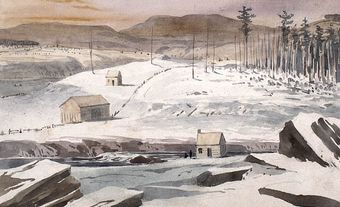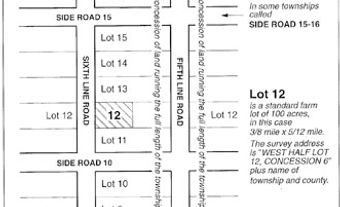County
The County is the principal division of land subordinate to the province in Nova Scotia, Prince Edward Island, New Brunswick, Québec and Ontario. Counties were first established in these provinces, after the English model, for a variety of purposes, principally property registration, local judicial courts, local Municipal Administration and provincial electoral districts.
In PEI, New Brunswick and Québec, the historic county structure is now used only in property description, with the remaining functions being administered through reorganized provincial and municipal structures. In Nova Scotia the county remains a rural administrative unit, with some of the counties divided into districts for municipal purposes.
Ontario has retained many of its counties as municipal and judicial units, with some of them united for these purposes. Wellington represents the typical county structure in Ontario. There are 22 municipalities united in the county: one city, 4 towns, 5 villages and 12 Townships. The county's functions embrace a variety of services including roads, building inspection and social services, School Boards and senior-citizen homes. Ontario north of Muskoka and Algonquin Provincial Park is organized into districts for judicial purposes.
Québec completely reorganized its municipal county administration in 1979, resulting in new units known as "regional county municipalities" (MRC). The 71 former municipal counties are now components of the 95 MRCs, 3 urban communities and one regional administration. Within this new municipal structure are over 1500 cities, towns, villages and other rural municipalities.
The only Western province using the county structure is Alberta, where 30 municipal counties and 20 municipal districts have various administrative and educational functions. In BC the word county is used in terms of the county court divisions. Elsewhere in Canada the land division comparable to "county" is usually called a district or rural municipality.

 Share on Facebook
Share on Facebook Share on X
Share on X Share by Email
Share by Email Share on Google Classroom
Share on Google Classroom


